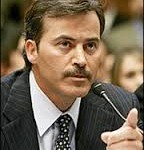Rob Bell's Blog, page 26
February 12, 2016
When You Lose, Do This…
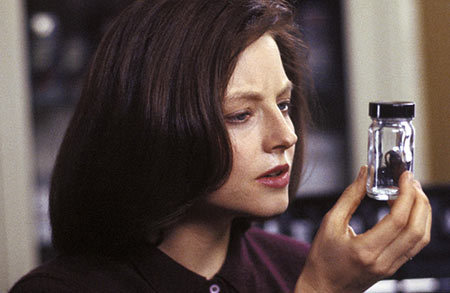
Winning is easier to handle than losing. Losing hurts and it is painful, especially when we have The Big Loss! However, we are going to lose in life more than we are going to win. So, let’s get better at it.
Those that have mental toughness actually handle losing better than those who are not as mentally tough. As Bobby Clampett once stated “It’s easier to lift a trophy than it is to lift up one’s head.”
When we lose, we need to do this!
-Perform an Autopsy-
Autopsies are performed by experts for medical and/or lawful purposes. An autopsy provides answers and gives us a cause of death. Autopsy=To see for oneself.
Losing is similar to death, except it is not fatal.
Coaches watch tons of film after games. They are looking for tendencies, mistakes, and how to improve. Often they won’t even give answers to the media for a loss until after they have performed an autopsy.
We can do the same. For instance, Rickie Fowler reflects after every round and goes through it in his mind.
1) Be objective
Losing is an event, it is not a person. If we can’t separate who we are with what happened, it’ll be more difficult to learn the cause. An autopsy requires us to be honest, which is difficult because it requires objectivity.
2) Find the cause
The toughest autopsies are the one’s where the death is undetermined. Truth is, we may have performed the way we were supposed to but the outcome just didn’t work out in our favor. Those hurt! We still need to find the cause, Did we lose or were we just beat?
3) It’s not you, it’s me
I hated that excuse, because it was a way to avoid the real reason! Blame is simple, it’s much easier to move the mirror in front of someone else. While we are looking for reasons why we lost, we must own our own stuff! What did WE control and what could WE have done better? Blame is simple, but it doesn’t help moving forward.
4) Don’t forget to bury the body
Coach Tom Griffin at Carson-Newman once had a bad loss heading into the post-season. He bought some meat, brought the entire team to the field at night at night, dug a hole, and buried the loss!
We need to MOVE ON, bury the loss, and hit the reset button. If we keep bringing up the loss after the autopsy, we haven’t buried it. Why would you want that dead body lying around?
It’s okay to look at the past, just don’t stare it.
Dr. Rob Bell is a Sport Psychology Coach. His company DRB & associates is based in Indianapolis. Some clients have included: University of Notre Dame, Marriott, and Walgreens. Check out the most recent book on Mental Toughness- Don’t Should on Your Kids: Build Their Mental Toughness
January 29, 2016
Palms Up for Mental Toughness

I’ve been to many different churches, Church of Latter Day Saints, Jewish Synagogues, A.M.E. Zion and Unitarian Universalists. I wanted to learn more about other’s beliefs, so I was fortunate to be able to explore. I was more into Whose your master rather than whose your pastor.
I’ve been to rock-star pastor services, those are creepy.
As a kid, I grew up in a Lutheran church. Many, many rituals. Conservative.
So, whenever I attended services where people held up their hands in praise, I was out of my comfort zone. I internally applauded them though, I thought it was courageous.
I’m obsessed with helping athletes, coaches, and teams with mental toughness. Every book I read can be applied to getting better. I want my clients to be THE BEST AT GETTING BETTER. In LOVE DOES, author Bob Goff provided a huge mental toughness technique.
Bob used to walk around all day long with his fists clenched, defensive, and angry. When we are defensive all the time, we can’t win. He made one adjustment and everything changed. PALMS UP.
Sit right now with your hands on the back of legs and turn your hands over with your palms up! Do it for a minute. One of my tennis players told me this made a huge difference in resetting himself during change-overs. He won a big tournament, maybe it helped, I’m not sure.
It’s about controlled aggression, not aggressive aggression, that burns us up. CONTROLLED AGGRESSION… Being in control of our emotions, responses, and energy. If we are not in control of ourselves, something else is in control of us.
Whatever our office, there are times to flip the PALMS UP! In the courtroom, time outs in basketball, in the dug-out, in the car, at the poker table, wherever. Embarrassed by it, or think people will look? More mental toughness is needed then. Heck, put a towel over your lap or hold something small in your hands. PALMS UP.
It’s unbelievable how our mood, focus, and confidence change with our PALMS UP. And if you like that or it is too much, try this technique.
Dr. Rob Bell is a Sport Psychology Coach. His company DRB & associates is based in Indianapolis. Some clients have included: University of Notre Dame, Marriott, and Walgreens. Check out the most recent book on Mental Toughness- Don’t Should on Your Kids: Build Their Mental Toughness
January 22, 2016
The Ed Sheeran Technique of Mental Toughness
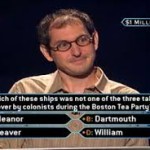
Courtesy of Valleycrest Productions.
Ogi Ogas is a genius who was on the show, Who Wants to be a Millionaire. He actually knew the answer to the Million Dollar question, but couldn’t PULL the trigger. His focused switched from knowing the answer to the wobbly chair, the audience, and the stakes…He became too focused on walking away with $500,000 instead of the answer.
It’s why I hate Alex Trebek, I’d look smart if I had all of the answers in front of me as well. I forget my neighbors names sometimes.
Pressure can burst a pipe because there is no space for the water to go. Our capacity for attention under pressure is similar. When we are in those “have-to” moments, and with time to think, the pressure can get to us, and we can only focus on one thing. It is so much easier to just play and react with no time to think.
Under pressure, since there is so much attention on the task at hand, very little mental energy can be consumed for anything else. It’s like if you are freezing, the body will conserve all warmth to the major organs first, good bye fingers. Communication is the first limb to go.
Whenever I’m stressed, I stop communicating. When teams get tired, all communication stops. Fatigue makes cowards of us all.
The Ed Sheeran Technique of Mental Toughness
Airlines and pilots discovered a better method for pilots and co-pilots to communicate. Some pilots were so head-strong that they operated under the guise of “When I want your opinion, I’ll give it to you.” Not the best way to operate in a team setting.
Airlines changed their way of training, they introduced the Ed Sheeran technique. Pilots were trained to Think Out Loud! They had to verbalize all of their maneuvers before take-offs and landings.
Communicating by thinking out loud accomplishes two goals. First, it makes pilots better by including the co-pilot into the actual thinking process and it eliminates the mind-reading. Second, co-pilots were trained on how to also think out-loud and address a pilots decision.
State the facts- Co-pilots were instructed to merely state the facts. “Our angle is incorrect.”
Challenge- They stated the pilots name and added a qualifier. “Mike, our angle is incorrect, Check the angle. “
Assume control- If unsuccessful at the 1st two, The co-pilot stated “ATC, we are coming around again.” Once the Air Traffic Control heard the message, they canceled the order and the pilot had to comply.
Rarely, did it make it to point #3.
The Ed Sheeran technique of Mental Toughness forces us to be confident. When we verbalize our thoughts, it ignites the dominant force of commitment. Thinking out loud makes us commit to the process. Thinking out out loud also opens us up to feedback and makes us think through any ideas or strategies. Thinking out loud is why people have accountability partners and why we share our goals. It forces us to execute.
I was thinking out loud with two coaches last week that this was going to be the next newsletter, so I had to commit.
Dr. Rob Bell is a Sport Psychology Coach. His company DRB & associates is based in Indianapolis. Some clients have included: University of Notre Dame, Marriott, and Walgreens. Check out the most recent book on Mental Toughness- Don’t Should on Your Kids: Build Their Mental Toughness
January 8, 2016
2 Mental Toughness skills that no one talks about.
 I hate it when I hear others type! It drives up the wall, because of course, I’m awful at typing. I look at them like a pauper views an aristocrat. I mean, how dare they actually look at the screen when they type- the audacity!
I hate it when I hear others type! It drives up the wall, because of course, I’m awful at typing. I look at them like a pauper views an aristocrat. I mean, how dare they actually look at the screen when they type- the audacity!
It has become a laughing joke if others who know my work see me typing. I am a pecker! I actually only use my two index fingers to type. I’ve written 4 books, a dissertation, thesis and a weekly newsletter using this method. I’m reminded about my shortcoming when I see others doing it so effortlessly.
Here’s the rub: It is effective, it is just not efficient.
I was stubborn, errr, iron-willed. In high-school I REFUSED to take some typing class, because why would I ever need to type that fast?
Stubborn
I like it when my athletes have stubborn traits because it shows that they have the capability for belief in themselves. Stubbornness can cause them to not overly-question their ability or skills. Stubborn people question the answers and other’s suggestions. That’s the mental toughness side of stubbornness.
However, stubborn people are also the most difficult people to work with and coach. A stubborn person alone by themselves is in poor company.
They often like to argue just for the sake or arguing. Stubborn people are rarely wrong, which means if you would just do things the way they wanted, all would be great.
The toughest part is that they just REFUSE to change. Sure, they may dabble in the realm of improvement but they revert right back to their old ways under pressure or duress.
Stubborn is a key to mental toughness, but by itself can easily fade into insanity, doing the same thing over and over and expecting a different result. Stubborn MUST be balanced with being coachable.
Coachable
I first met coach Chuck Pagano at the NFL combine. After introducing myself, the next thing out of his mouth was a question; he asked, “what do you emphasize with your athletes?” I had my answer and we chatted about it. I think it was a good answer, I’m not sure.
But, here is an NFL coach and he asked ME a question? I doubt Bill Parcells would have done that. So, here was my conclusion: he was just trying to get 1% better.
An easy tell if someone is coachable is the number of questions they ask. A coach’s favorite words to hear are “Can you watch this and let me know what you think?”
“How’s that working for you?” That’s the question I need to answer.
If you have a stubborn athlete or employee, but they remain coachable, you’ve got a winner. It means that they are open to change and willing to receive feedback. Stubborn and coachable is mental toughness.
If you have someone is stubborn but uncoachable, the solution is to emphasize the relationship and construct the trust.You have to get creative with stubborn, and ensure they are the one’s who came up with the idea. The walls of uncoachability often come slowly down the more he/she knows that you care about THEM and not just their PERFORMANCE.
Dr. Rob Bell is a Sport Psychology Coach. His company DRB & associates is based in Indianapolis. Some clients have included: University of Notre Dame, Marriott, and Walgreens. Check out the most recent book on Mental Toughness- Don’t Should on Your Kids: Build Their Mental Toughness
January 1, 2016
The one way to FAIL at your goals…
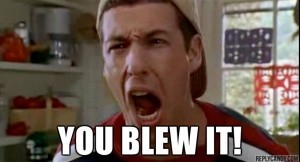
Credits: Adam Sandler- Billy Madison
There are tons of ways to achieve your goals. I don’t think it is a lack of information, we all know what to do. In fact, I can do without hearing any more people touting off about setting S.M.A.R.T. goals. It’s like they came up with the acronym or something.
This is about how to FAIL at your goals. We as a society know more about failing anyway, so shouldn’t’ we learn to avoid the mentality that happens and why we FAIL?
I’m under the belief that more games are lost than they are won.
Here’s how to fail…
As a professor, every semester during the first few days, I was adamant in communicating that if a student showed up to class, they would get no worse than a “B.” All bets were off however if they missed even one class. I was not giving away grades, I was just demonstrating that tenacity is more important than talent, and if someone showed the discipline to show up to every class, then they were eager enough to learn and make it happen.
When 9/11 occurred, I was a graduate student at Temple University and they did not even close the school (imagine that). The professor did not cancel the evening class either, so I showed up. I was with two others. I felt so fortunate to be in graduate school, that I made the commitment to do whatever it took to thrive.
A funny thing happened as a professor though when my students would eventually miss a class. They would miss another! I was so keen on this phenomenon of people who missed one class that I kept track of it. Only about 20% of the time did a person only miss one class.
Here’s how to fail at your goals…
The way to fail is to say “screw it, I blew it.” However, this mentality is pervasive, check out health club attendance in January and then in March. Over 50% of people drop out within 6 weeks. Once they miss once, they miss again…
If we give in or go through the motions it actually makes it easier to do it again. Quitting has now become an option for us. The science behind this one mistake or lapse is abstinence violation effect. All it takes is that one mistake or slip up and the mentality becomes “screw it, I blew it.”
The shame and guilt of messing up hurts a lot. It often hurts worse than quitting because when we quit, we don’t have to keep returning to the scene of the crime. There are no more painful reminders and we can move on. Hence, the “screw it”. The sad part is that we aren’t quitting on ourselves, we are quitting on who we want to become.
How would you explain your vacation to California if you got a flat tire on the way there, so you turned around and headed back home?
It’s not about the setback, its about the comeback.The one workout you missed or one piece of cake that you ate does not define you. If you miss, it’s how you respond to the setback. Can you learn from it and approach your goals with an even stronger resolve and enthusiasm?
Mental Toughness is NOT about messing up, it’s about not giving up. When the thought or option of giving up enters, it is an impostor trying to derail you. Move on from the mistake, change the tire, and just keep going.
But this post isn’t about mental toughness it is about how to fail.
Dr. Rob Bell is a Sport Psychology Coach. His company DRB & associates is based in Indianapolis. Some clients have included: University of Notre Dame, Marriott, and Walgreens. Check out the most recent book on Mental Toughness- Don’t Should on Your Kid: Build Their Mental Toughness
December 18, 2015
My Top 5 Books From 2015
“If you are a coach, you are paid to read.” That’s what Tim Robbins taught me, I believed him, so I tried to abide. I hammered more audiobooks this year than every before as well.
Here are my top 5 books from 2015 (in no particular order).
Click on any book image to learn more…
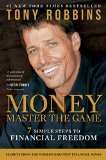
 This book was outstanding. He interviewed and embedded the stories and strategies of the greatest financial minds. We immediately started implementing two techniques that he outlined in the book and it saved us a few thousand dollars, not bad.
This book was outstanding. He interviewed and embedded the stories and strategies of the greatest financial minds. We immediately started implementing two techniques that he outlined in the book and it saved us a few thousand dollars, not bad.
 James Altucher has become a go-to resource for me. This book outlined strategies for wealth (a trend from me this year?), but how and why to choose yourself. Ten ideas a day, insight into your 401k, why the house always wins are some cool concepts.
James Altucher has become a go-to resource for me. This book outlined strategies for wealth (a trend from me this year?), but how and why to choose yourself. Ten ideas a day, insight into your 401k, why the house always wins are some cool concepts.

 Chip & Dan heath also wrote the awesome books Switch and Made to Stick. These books are up there along with Malcom Gladwell’s. Decisive delved into how and why we make certain decisions and how to counter-balance our own intuition with making smarter decisions in almost every circumstance.
Chip & Dan heath also wrote the awesome books Switch and Made to Stick. These books are up there along with Malcom Gladwell’s. Decisive delved into how and why we make certain decisions and how to counter-balance our own intuition with making smarter decisions in almost every circumstance.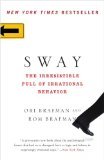
 I did NOT think I would like this book. I always have my guard up when it comes to books about persuasion techniques. However, all I could think of while reading this books is how NFL scouts and college coaches “miss” on players. A very enlighting book!
I did NOT think I would like this book. I always have my guard up when it comes to books about persuasion techniques. However, all I could think of while reading this books is how NFL scouts and college coaches “miss” on players. A very enlighting book!
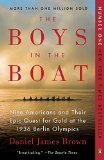
 As you can see, I’m not a fiction guy at all. I think the truth is much more entertaining. The amount of research that went into this book was amazing. The journey of the 1936 crew that transformed the sport of rowing. Epic stories of mental toughness and overcoming adversity.
As you can see, I’m not a fiction guy at all. I think the truth is much more entertaining. The amount of research that went into this book was amazing. The journey of the 1936 crew that transformed the sport of rowing. Epic stories of mental toughness and overcoming adversity.
Dr. Rob Bell is a Sport Psychology Coach. His company DRB & associates is based in Indianapolis. Some clients have included: University of Notre Dame, Marriott, and Walgreens. Check out our most recent book on Mental Toughness- Don’t Should on Your Kid: Build Their Mental Toughness
December 11, 2015
Why we “shouldn’t” have heroes
I was a huge B.J. Surhoff fan. He played baseball for the Brewers and the Orioles. I didn’t just meet him, I rushed into him at a bar at the University of North Carolina and I apparently freaked him out. He wouldn’t even let me buy him a beer. It was awkward.
I also was once backstage at a show of my favorite band, Bad Religion, and met the lead singer, Greg Graffin. I learned my lesson not to bum-rush him. But, since I had just finished his book, I figured I had an “in.” He merely said “hey” and walked away.
In both instances, I was really let down…
My son wears a Batman mask to school and even wears it to bed. Maybe he has it correct, be your own hero.
I’ve met and interacted with tons of professional athletes since it’s my career. Some are really cool and great people, and some I’m not so sure about. Having athletes and celebrities as heroes though is dumb. Just because someone can throw a pitch 98 mph doesn’t make them a good person. We have NO IDEA the type of person he or she is off of the field. We are who we are when we are alone.
To be fair, athletes often don’t have a choice if they want to be a role model, it’s a de facto position. I was afraid to be a role model or a leader because I thought I’d messed up and didn’t want to let others around me down.
It is far better to have quality people as heroes, and perhaps they just so happen to be great athletes. These types of heroes are easier to root for. Dwayne Allen, Rickie Fowler, Derrick Brooks, Webb Simpson, Maya Moore, Fred Barnett, and Kirk Cousins are a few athletes that receive my check of approval as heroes.
I want to add one to the list, Zach Miskovic.
Zach Miskovic is a hockey player and currently a minor leaguer for The Indy Fuel. After a Sunday home game, all families in attendance were encouraged to skate on the ice immediately after the game while the players rejoined the ice and skated with everyone.
I can’t imagine that after a game in which they lost their third home game in a row, that skating for another 45 minutes was the best of times.
I thought, at first, that Zach merely had a ton of his own children because he was skating, chatting, and playing around with so many. You could tell he was enjoying the moment.
At one point, he skated up to my daughter Ryan, grabbed her, and skated along with her. I doubt there was even one kid on the ice who he did not touch or talk to during the 45 minutes. Real heroes seem to go above and beyond.
What’s more impressive is that at dinner that evening, we saw Zach eating at a nearby table with his friends and family. Ryan and I both went up to thank him and he said “Hey Ryan!” “Did you have fun?” Now, I struggle with remembering my neighbor’s names sometimes, but out of all of those kids, he still remembered Ryan. Wow!
I told my daughter that it takes as much effort to be an outstanding guy as it does to be miserable. It’s not about messing up, it’s more about doing our best with where ever we are. Maybe it is okay to have heroes…
Dr. Rob Bell is a Sport Psychology Coach. His company DRB & associates is based in Indianapolis. Some clients have included: University of Notre Dame, Marriott, and Walgreens. Check out our most recent book on Mental Toughness- Don’t Should on Your Kid: Build Their Mental Toughness
November 20, 2015
19 ways to practice humility…

My mom drove me and my twelve-year-old friend three hours to the beach. We stayed in a hole-in-the-wall motel called The Executive and she slept the entire weekend. My mom at the time was working her way through nursing school and was exhausted because she had worked several consecutive shifts.
This wasn’t a family vacation, those were over. This was a mom providing her youngest son a weekend with a friend at the beach. I think that was an example of humility, I’m not sure, I do know it was the opposite of pride. It was finding a way. Amazing why some memories stick.
Humility is interesting because it is not revered, nor cherished. It is mistaken for weakness, because who wants to admit that they are not the center?
However, Humility is a big brother to patience. These are both mental skills that require being intentional because they don’t come naturally to many of us.
Humility as a pathway to Mental Toughness.
It’s not thinking less of yourself, it’s thinking of yourself less.
Being of service to others…
When we are wrong, we promptly admit it.
Not caring about who really gets the credit…
Doing the next right thing…
Means living without extremes…. Moderation
Humility is intended for a good person who wants to get better.
It means asking GOD to direct my thinking.
A form of spiritual fitness.
Asking GOD for help and getting the reply “ask me again tomorrow.”
Asking who else can I pray for?
A perpetual quietness of the heart…
Going to God…
Asking, not telling…
A conscious effort to NOT think about myself. (or else I will think of myself)
NOT having to one-up people…
Rooting for everyone!
Honesty…
Gratitude..
Paul Tesori, caddy to Webb Simpson, is an OUTSTANDING man. He told me one of his techniques when someone congratulates him or pats him on the back for a job well done. He visualizes laying a rose at the feet of his savior. It’s one way he practices humility. His faith is rooted in giving God the glory in all things.
When we start counting our blessings rather than our shortcomings, it gets difficult to stop.
Dr. Rob Bell is a Sport Psychology Coach. His company DRB & associates is based in Indianapolis. Some clients have included: University of Notre Dame, Marriott, and Walgreens. Check out our next book on Mental Toughness- Don’t Should on Your Kid: Build Their Mental Toughness
November 13, 2015
The Eyeball Contract…
 I spoke to a group of elite divers every week this previous summer. This session, I brought along my son and daughter, ages 6 & 4. They enjoyed sharing the stage with daddy, (I think my daughter loves selling the books), but this time they were particularly enjoying the attention a bit too much. The divers became distracted, so I had to ask my kids to settle it down. Didn’t work… I then knelt down to say it again and my son lovingly punched me in the face.
I spoke to a group of elite divers every week this previous summer. This session, I brought along my son and daughter, ages 6 & 4. They enjoyed sharing the stage with daddy, (I think my daughter loves selling the books), but this time they were particularly enjoying the attention a bit too much. The divers became distracted, so I had to ask my kids to settle it down. Didn’t work… I then knelt down to say it again and my son lovingly punched me in the face.
The divers awkwardly laughed, but I didn’t. I needed to remain calm and take control at the same time. It was also one of those moments where you could feel all of the eyes on you.
I told him “EYEBALL CONTRACT”. Then, I proceeded to instruct him what was now expected. No more distraction, issue solved. I went right along with the presentation and even told the divers what I just did. A teachable moment…
John Groce, Head Coach of Illinois Basketball, has his players form an eyeball contract. The culture is such that in the huddle before practice and games, players have an eye-ball contract. The eye-ball contract means looking in someone’s eyes and knowing that you will give your best and they will give their best!
I use it with my family and vice-versa when it is something very important. We need each other at their best. No more games~this is what were are going to do.
I’ve seen the best of intentions on signed contracts, pledges, or agreements. They sound great but rarely work. They are more about looking good rather than actually making a difference.
People are going to make mistakes and mess up. It happens. Those that signed an agreement or pledge however to NOT mess-up are now bound by a law. When and if they do stumble, they are now under the thumb of extreme shame for the mistake. They often can’t come clean because they are in an abyss. What happens is that they become good liars. The agreement once propped up as a show of pride turns into an awful reminder.
The strategy of an eyeball contract gets results because it addresses the moment, not the past. Eye-ball contracts can be agreed upon frequently and when core values are at stake. It puts the emphasis on our character, in that exact moment. Forget the past.
The head fake is that the best eye-ball contracts are with ourselves in the mirror. Chris Herren, as a former professional NBA player, struggled with alcohol and drug addiction. It wasn’t until he became sober that he finally looked at himself in the mirror. He simply didn’t like himself before.
I hate messing up, it saps my confidence and I’m just not of much use to anyone during those times. But, all I have is an eyeball contract, and that is renewable every day. I’m going to answer the bell more often than not. Mental Toughness is less about not messing up and more about not giving up. However, what kills most belief is just not allowing ourselves to mess up. We are all worthy of an eyeball contract with ourselves.
Dr. Rob Bell is a Sport Psychology Coach. His company DRB & associates is based in Indianapolis. Some clients have included: University of Notre Dame, Marriott, and IMI. Check out our next book on Mental Toughness- Don’t Should on Your Kid: Build Their Mental Toughness
October 30, 2015
Top 10 things I’ve learned from coaches
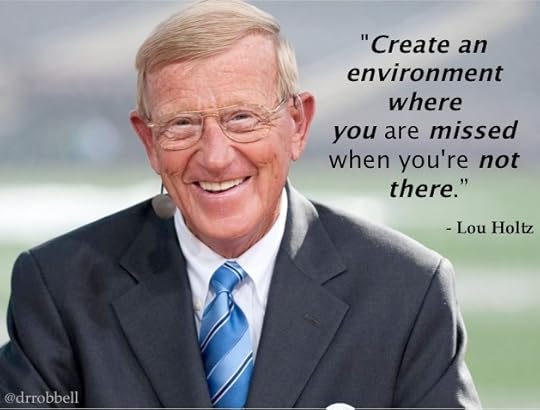
My high school baseball coach once praised me behind closed doors but criticized me in front of my teammates. I think he had it backward, but I wasn’t mentally tough at the time. He served as a huge external motivator to prove him wrong later in life.
My junior varsity soccer coach taught me the most. He would run us for miles and miles and throw in sprints along the way. We had a massive hill that we would run. The day before games, whoever we were playing, we had to sprint 50 yards while shouting out each letter of the team! North Hagerstown was a tough one. He taught me that it was a privilege to train.
Coaches are the most important person in today’s society. It doesn’t matter if you have a poor coach either. All coaches teach us something, either how to do things, or how not to do things.
Top 10 things I’ve learned from coaches
You are paid to read-
I read about 15 books one year and felt pretty good. Except, when Tim Roberts told me that he read 93 books that year, he added why, “You are PAID to read.” The knowledge is out there, but it’s a coach’s job to sift through everything and communicate the main thing, whatever the main thing is.
Create an environment that you are missed if you are not there-
Lou Holtz was a genius. He knew that the best place to work was determined by the environment that we created. I was a professor at a University and was no longer living my passion of working with teams and athletes. My work and attitude suffered. I had to leave because I couldn’t foster an environment where I wanted to be. Maybe some people missed me, but the school didn’t stop, and I didn’t get too many calls begging for me to come back.
Listen-
The first time I met head coach Chuck Pagano was at the NFL combine. I introduced myself and told him my profession. What he did next was amazing. He asked me a question. “Hey, what’s the one thing you stress to your athletes?” I answered it well I thought, but what struck me as odd is why he asked me a question. Head NFL coaches usually don’t do that. But that is exactly how he got to where he is. He listens. Asking questions is the best straw to stir the drink of listening.
Sit in front-
Hall Of Fame baseball coaches Tommy Pharr and Tim Corbin seemed to race to see who got the closest seat at any conference session. That’s all the proof I needed.
It doesn’t matter what you know-
What matters more is what they learn. Can you communicate it and keep it simple? Great coaches master the simple. As Coach Herb Sendek said “Simplicity is the room I want to live in.”
Themes instead of absolutes-
They always seem to stress that what we do is not as important as how we do it. We want to trust our constituents to do what they do; take risks, play free, and utilize their strengths. The best coaches have principles in place, but allow freedom to work within a framework. They make adjustments and aren’t married to only one style.
You’ll get fired-
There are two types of coaches, those that have been fired and those that will be fired. I was fired twice after two of my athletes had career changing wins. I thought I would have been fired after they lost. But after they won, they actually didn’t need me anymore. My job is to build capacity, not dependency. There is only a handful of coaches in any sport that haven’t been fired at some point.
Be the coach you always wanted-
Everyone is a coach and we are always communicating. A coach is someone that takes you somewhere you want to go.
Thank the coach-
Coaches Mark James and Brian Satterfield end practice the same way, they shake each player’s hand. Simple, yet powerful. No matter the type of practice or outcome of a game, the ending is the same. It was created as a way to put a type of positive closure on a poor day, a way to END it positively.
A better you makes a better us-
And a better us makes a better you. We need to root for those around us to get better. Too often we look at others as competition and a threat, rather than an opportunity to improve. Frankly, it’s the only way to improve.
Dr. Rob Bell is a Sport Psychology Coach. His company DRB & associates are based in Indianapolis. Clients have included: University of Notre Dame, Marriott, Walgreens, and IMI. Check out our next book on Mental Toughness- Don’t Should on Your Kid: Build Their Mental Toughness


